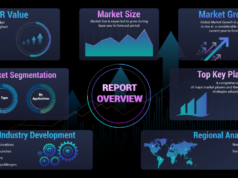Azure Integration Services provide a comprehensive platform for integrating with Azure.
Organizations can use Integration Services to connect to Azure services, manage data flows, and orchestrate integrations across systems. Professional Integration Services offer features such as managed connectors, support for batch processing, and scalability. These features allow you to quickly and easily build integrations with Azure services.
Businesses that have redefined their working phrases by deploying cloud-enabled organization programs have visible colossal success. By jogging those programs in a cloud, corporations can benefit from the cloud’s security, scalability, and smoothness, even as being cost-effective.
Most successful companies, including Fortune 500 companies, employ Microsoft Azure to power their businesses. Not just for established businesses, Azure is designed for smaller businesses as well, regardless of their size. It is easily scalable and can meet the IT demands of a company of any size, be it a local bakery or multi-national cooperation.
Microsoft Azure comes with the support of a range of operating systems, databases, programming languages, and devices. This additional support helps leverage the Microsoft technologies and tools that the enterprises already own and trust.
The Importance of Azure Integration Services
Microsoft Azure Integration Services (AZIS) are an essential part of any business that uses Microsoft technology. AZIS provides a range of features and functionality to help your business integrate with Azure, from the simplest tasks such as logging into Azure using Active Directory, to more complex integrations such as automating the deployment of applications on Azure.
Here are some reasons why you should consider using professional AZIS services:
1. Depth and breadth of integration capabilities
AZIS offers far greater depth and breadth of integration capabilities than most other cloud-based solutions, allowing you to automate many tasks involved in integrating with Azure.

2. Automation and compliance
With AZIS, you can easily automate the deployment process for your apps on Azure, ensuring that they are always compliant with your company’s corporate policy requirements.
3. Speed and efficiency
Using AZIS can speed up the integration process by allowing you to automate many common tasks. This can save you time and money, while also ensuring that your integrations are done correctly and efficiently.
This article will discuss the top seven reasons why we should opt for professional Azure-managed services. By the end of this article, we will have a clear understanding of the benefits of Azure integration services and how they can help a business grow.

1. Infrastructure and Platform as Service Capabilities
Azure can be found with Platform as a Service (PaaS) and Infrastructure as a Service (IaaS) capabilities that help the organization outsource information on Azure. PaaS enables us to develop creative solutions and web applications. Moreover, it makes access to Microsoft Partner Community’s Azure consultants possible. These consultants can help and advise businesses to build applications that foster more significant growth within the organization.
2. Security
Azure was designed by Microsoft based on the industry-leading Security Development Lifecycle (SDL) process. This ensures that data and services on the Azure cloud are safe and secure. Furthermore, Azure offers the best compliance coverage with over fifty compliance offerings. US government institutions have entrusted Azure as the most reliable cloud service. Therefore, any user can be assured that he is provided with the best-in-class security service by Microsoft Azure. Not only security, but Azure also has outstanding disaster recovery abilities. Azure can restore lost data within hours, saving valuable enterprise time.
3. Hybrid Capabilities
Azure’s excellent hybrid capabilities allow the organization to experience consistency in private and public cloud deployments. Besides this, the hybrid capability also facilitates seamless mobility, which helps in bolstering performance and usability. Azure users can furthermore avail a wide array of hybrid cloud connections that include Virtual Private Networks (VPN), Content Delivery Networks (CDNs), ExpressRoute connections, and caches.

4. Analytics and Intelligence
Azure facilitates Structured Query Language (SQL) and Not so Structured Query Language (NoSQL) data services. Azure also has the necessary tools to delve deeper into the data to uncover valuable insights we can use later to improve business processes. Moreover, Azure offers cognitive APIs, machine learning, Blockchain as a Service, and bots.
5. Easy to Learn
Azure managed services are easy to understand because it uses already familiar tools like ASP.NET or Visual Studio and programming languages such as Visual Basics, C++, C#, and others. Developing cloud-native applications using in-house tools is more straightforward than hiring consultants.

6.Cost-Efficient
Microsoft Azure adopts a pay-as-you-go model: it requires us to pay only for what we have used to expand and build the resources for our cloud deployment. This allows us to optimize administrative costs as we no longer have to invest resources in infrastructure.
Azure is in 42 regions and seamlessly connects various data centers to the cloud. This allows us to scale up quickly and explore newer markets. Also, Azure integrated services give consistency and efficiency among the connected devices, thus making the organization more cost-efficient.
7. Identity and Access Management
Through Microsoft Azure integration, business organizations are provided access management capabilities and secure identity with the Azure Active Directory Service.
Therefore, users can access only those that the IT permits. The organization can also deploy Azure’s matured access management capabilities to reduce the expenses of identity management.

Conclusion
Microsoft Azure is a powerful tool to help businesses achieve their goals and objectives. Azure is the second-largest Platform as a Service (PaaS) and Infrastructure as a Service (IaaS) provider worldwide. Azure not only helps in deploying, building, and managing apps much more quickly, but its additional advantage of being integrated into other Microsoft products allows users to avail of them. This makes Microsoft Azure a valuable asset for any business enterprise.









